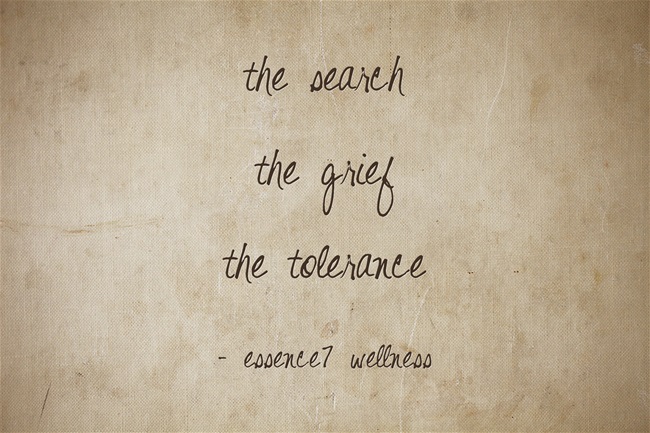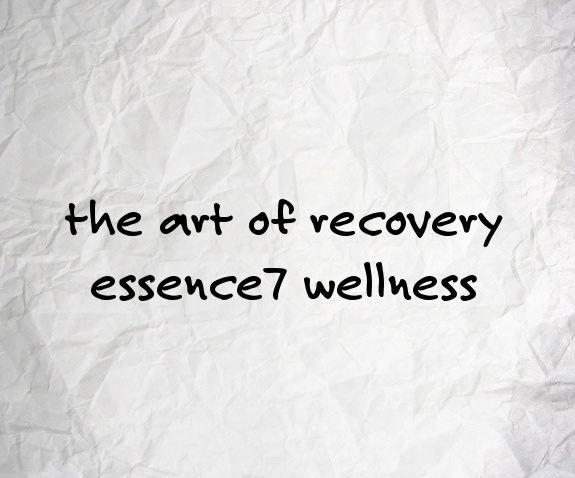recovering from an eating disorder can be a long and lonely road.
there may no longer be physical symptoms exhibited.
but there may still be emotional barriers that interfere with healing.
many are surprisingly universal.
others are uniquely individual.
today i’d like to address three common roadblocks that i have witnessed:
- the search for a new sense of self
- the grief that accompanies the loss of the eating disorder
- the tolerance necessary to bear difficult feelings
search
often an eating disorder can make its sufferer feel special.
sometimes the behaviors are seen as accomplishments in self-control.
in this way, the person struggling may actually feel more powerful than others.
the eating disorder has given them a reason to be noticed, to be out of the ordinary.
proof that they are not average.
and it may very well have made family members or friends pay attention.
it is difficult to give this up.
in reality though, there is often a bewildering lack of control.
and an eating disorder becomes a crutch to hang onto.
a “lifeline” which, in truth, is just the opposite.
grief
the eating disorder can quickly become all-encompassing.
therefore, it is not unusual to see the anorexia or bulimia as a familiar “friend.”
a constant companion.
the only one who really understands the suffering.
that is there to comfort and console the individual.
going through recovery means entering the world of the unknown.
and that means uncertainty and loss.
time has slipped away as well.
and sometimes the ability to function in a healthy way.
grieving is a real and understandable part of saying goodbye to an eating disorder.
tolerance
strong emotions can be frightening to experience.
it can be hard to summon up the inner strength required.
an eating disorder serves to help numb or mask these feelings.
emotions may be suppressed while restricting food or bingeing on it.
painful moments may be blocked by engaging in the mechanics of the disorder.
unfortunately the “hurt” does not go away.
it may be temporarily stymied, but must still be dealt with at some point.
the problem eventually compounds on itself,
with the addition of one more layer (the illness) that must be worked through.
and sadly the positive emotions are also kept at bay.

many say that recovery from an eating disorder is rarely absolute.
to that i say “what in life IS absolute?”
here is how i like to view it.
as a supportive coach, i will take your hand.
you, the intrepid explorer.
and help you over the last mile of that emotional border.
waving farewell to the final roots of your eating disorder.
as you venture out into the rest of your amazing and fulfilling life.

i see this last piece of the recovery process as an art form.
the sculpture of a new way of being.
reached only through creativity, boldness, and love.
together we’ll take your crumpled up masterpiece,
that you thought would never measure up,
that you tossed out with the trash.
and we’ll smooth it down and appreciate all of its rough drafts.
we’ll recreate your life’s work.
as you spread your proverbial wings.
so believe in what can be.
despite the barriers in your way.
because there is hope.
there is always hope if you are alive.
and you are alive . . .
Dance, when you’re broken open.
Dance, if you’ve torn the bandage off.
Dance in the middle of the fighting.
Dance in your blood.
Dance, when you are perfectly free.
(Rumi)
this is part one of a two-week series.
next week, part two.
where i introduce ways you can approach these three obstacles.
to maintain your recovery and live an integrated life.
without anorexia. or bulimia. or binge eating.
reactions or thoughts?
please let me know.


Sometimes I wonder if I have an eating disorder. What does it really mean to an individual who knows that they get adverse reactions from certain foods, and yet continue to eat the foods that make them sick or emotionally unstable. When my son was diagnosed with autism, it was nothing for me to clean out my kitchen of dairy, gluten and sugar to heal his gut so that he can live a life as close to [what society views as] “normal” as possible. During that time I never felt better. However, I do binge in private when I feel the slightest form of anxiety. Eating Disorder? I never really thought about it until this post. Thank you for this “Aha” moment.
denise – i am sorry to hear that you’ve been struggling. can you think of ways other than bingeing to get through your anxious moments? try to come up with a list of “go to” items that you can do the next time you’re feeling anxious. or, if you’d like to go a bit deeper, simply sit with the anxiety. let it wash over you and try to pinpoint what it is that is making you feel that way (anxiety is often a secondary emotion). our emotions will not destroy us – in fact, they are here to guide us,to point out what is good and what needs to be changed in our lives. try to listen to what your emotions are telling you. take care of yourself.
As a therapist I had a little experience working with eating disorders. But I won’t say I understand completely. What I will say is that people need to believe they are loved and are worthy and are good enough. I believe that with this comes the release of the struggle with so many things – whether it’s an eating disorder or a substance addiction or issues with self esteem or anxiety. . . whatever the concern, at the root of it, it can be healed when you allow yourself to realize you are OK.
i agree completely, jessica. love and understanding goes a long way – it is important that people experience and believe in their own worth. thank you for sharing your wisdom.
I’m 22 years clean and sober, and much of this resonates deeply with me. I was thinking and speaking about my addiction to negativity and worry last night. Persistent! Harder to shake than the drugs, clearly.
Thanks for this post, so much love expressed in it!
Love and magic,
Sue
congratulations on 22 years, sue! yes, we like to hang onto negativity and worry, don’t we? thank you so much for sharing your story.
“together we’ll take your crumpled up masterpiece,
that you thought would never measure up,
that you tossed out with the trash.
and we’ll smooth it down and appreciate all of its rough drafts.”
I suspect at some point in each of our lives we’ve tasted being “crumpled up masterpiece(s)” in one form or another. But to be seen by another who can hold the beauty of who we are while navigating the trash and rough drafts is a hope beyond hope come true. Your holding of the space for others navigating unsettled waters is a tremendous gift indeed.
thank you for such a lovely comment, lorraine. and you’re right – i know i have personally experienced that crumpled up masterpiece. i sincerely believe in hope however, and i feel privileged to offer it to someone who is struggling.
I think these three stages, very well put, can hold true for a great number of disorders. Including eating and hoarding. And I know you were talking more of the eating disorders as it pertained to bulimia and anorexia, but overeating is also an issue we deal with in this world, using food to numb ourselves is a big trigger and these three stages can help anyone dealing with that as well.
Great job!
you are absolutely correct, vivian! (in fact, much of my work has been with women who struggle with overeating.) food is essential to life, yet we often find ourselves tangled up in unhealthy relationships of one form or another with it.
At what point are these roadblocks? Aren’t they actually stepping stones?
what a beautiful way to phrase it, aryn! yes, they could definitely be considered stepping stones (and actually i address this exact point in the art of recovery ~ part 2). it all lies in how the individual approaches or interprets these three potential roadblocks. that moment becomes the turning point. thank you so much for sharing this very important perspective.